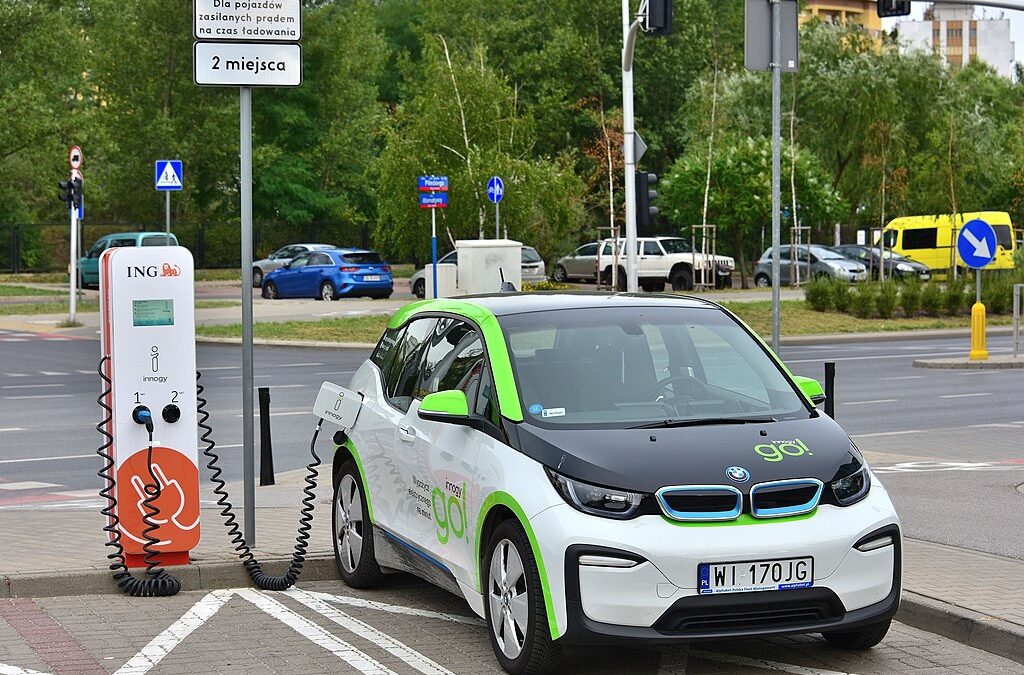The government’s scheme to subsidise the purchase of electric vehicles, launched last month, has failed to attract much interest, with only 167 of the expected 2,000 applications coming in so far, according to new figures.
As part of a wider electromobility push, the government has pledged that it will subsidise purchases of electric vehicles – including private cars, vans and taxis – through the National Fund for Environmental Protection and Water Management (NFOŚiGW), a government agency.
The stated aim of the “Green Car” programme is to limit emissions, which, among other harmful effects, are one of the causes of the smog that blights many Polish cities. Applications for the scheme are running from 26 June to the end of July, according to NFOŚiGW.
However, new figures from NFOŚiGW, reported by Rzeczpospolita, show that to date only 167 people have applied for the programme subsidising privately owned cars, seeking a total of 2.8 million zloty (€0.6 million).
The numbers come in at much less than had been initially assumed when the scheme was launched, anticipating 2,000 applications with a total value of 37.5 million zloty.
One reason for the low take-up could be the conditions of the programme. Only cars costing up to 125,000 zloty (€28,000) are eligible for subsidies, which limits the buyer’s choice to just a few models.
Moreover, in January the advertised subsidy was halved to a maximum value of 18,750 zloty, which is much lower than comparable schemes in other European countries, reports Money.pl, a financial and economics news service.
There has also been limited interest in the government’s eVAN programme, which has a total budget of 70 million zloty to provide subsidies for electric delivery vans.
The scheme, however, excludes vans for commercial transport of goods, which is the main purpose of such vehicles. As a result, to date only 15 applications have submitted, asking for a total grant value of 607,000 zloty. “The failure of this programme was easy to predict,” writes Money.pl.
Meanwhile a third scheme, Koliber, reimbursing taxi drivers who buy or lease an electric car, has not seen a single application come in. The programme has a budget of 40 million zloty. Yet, the price of subsidised cars has been capped at 150,000 zloty, which is too low for commercial vehicles, reports Money.pl.
A further problem for all these schemes has been that the subsidy has been designed as a rebate – after a car has been purchased – rather than a discount on the sales price.
This means that potential buyers need to have more money up-front to purchase, register and insure the car, and only then can they begin to apply for the partial refund.
Poland’s government has placed great emphasis on its efforts to increase electromobility in Poland. Last month, a separate fund of 60 million zloty was set up to finance purchases of electric school buses and e-mobility infrastructure in rural communities.
The overall results have, however, so far been disappointing. By the end of 2019, there were only 8,637 electric cars registered in Poland and 1,000 charging points, according to the Polish Alternative Fuels Association (PSPA).
This represents limited progress towards the government’s ambition to have over 600,000 electric and hybrid cars on the road by 2030 – a goal that has already been lowered from the prime minister’s original plan of having one million electric vehicles by 2025.
The government recently again delayed the long-promised unveiling of a Polish electric car prototype. It says that the plans are “technologically prepared” but that it has had trouble breaking into a competitive market.
Main image credits: Adrian Grycuk/Wikipedia (under CC BY-SA 3.0 PL)

Maria Wilczek is deputy editor of Notes from Poland. She is a regular writer for The Times, The Economist and Al Jazeera English, and has also featured in Foreign Policy, Politico Europe, The Spectator and Gazeta Wyborcza.




















